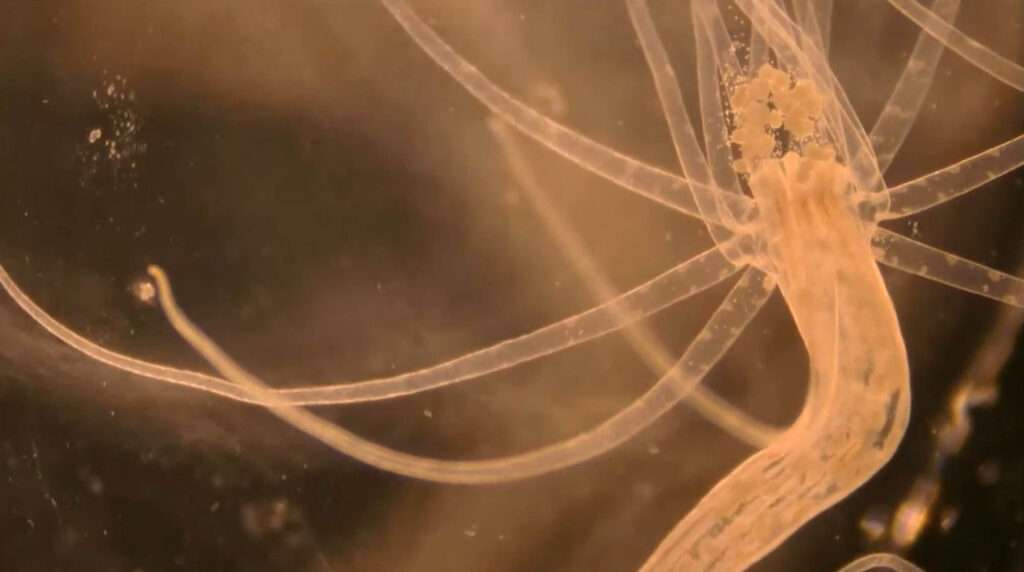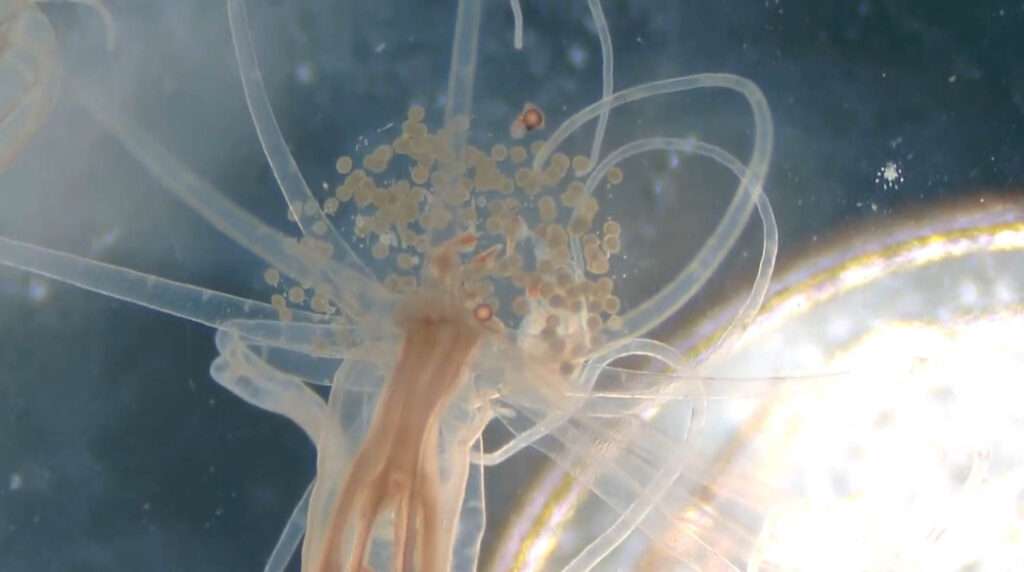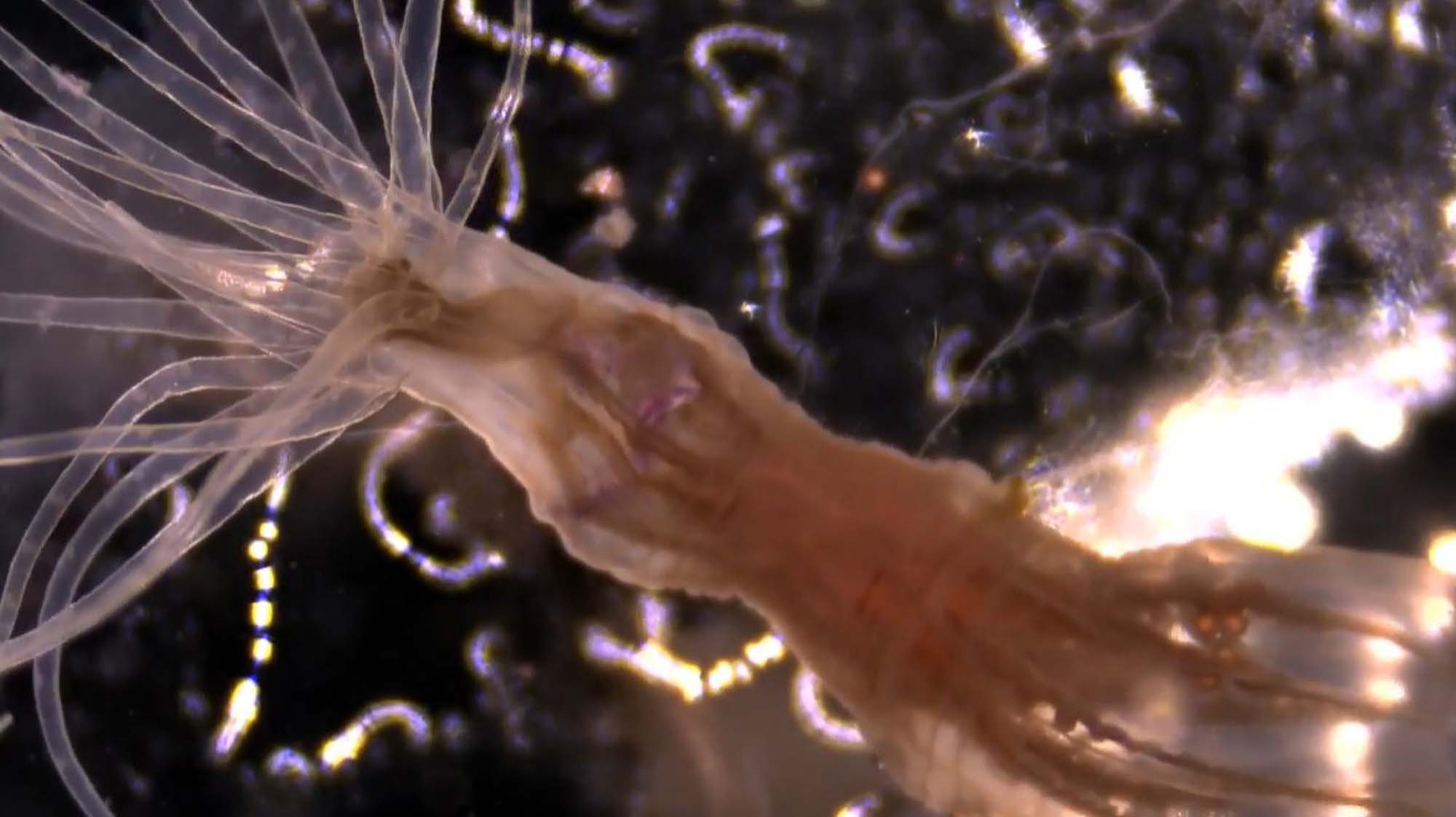Researchers claim to have found that it is not necessary to have a brain in order to learn something.
The remarkable discovery was made by Prof. Simon Sprecher from the University of Fribourg, Switzerland, and his team who discovered that sea anemones which do not have a brain can nevertheless learn and adapt their behaviour based on past experiences.
His research was based on starlet sea anemones, small sea creatures listed as ‘vulnerable’ by IUCN and native to the US coast, but later introduced to England.
In a press release from the University obtained by Newsflash, they reported: “We spontaneously associate the faculties of learning and memorization with the existence of a brain. Indeed, science already knows quite a lot about the various functions located in different zones of the brains of humans, mice, and insects.”

Yet in the case of the sea and enemies the Swiss team working together with Spanish colleagues found that they had a high capability of sophisticated learning despite having no brain.
For the study, Prof. Sprecher and his team conducted classical conditioning experiments involving light and an electric shock to investigate the learning skills of the species Nematostella vectensis.
Classical conditioning involves the pairing of an initially neutral event with a biologically significant outcome in the form of either a reward or a negative consequence.
The scientists then randomly assigned groups of 10 or 18 starlet sea anemones to either paired trials in which light and electric pulses were in tune or unpaired trials in which the pulses occurred out of sync.
The researchers then used small electric shocks to make the animals retract their tentacles, training them by giving them the shock at the same time as light or at different times.
They later tested their reaction to light only, and noticed that the individuals that received light and electric shocks together had adapted their behaviour and reacted to light alone after conditioning.
Additionally, the group of sea anemones that had previously received the shock at the same time as the light, a total of 72 per cent retracted their tentacles at the light alone.
This – according to the scientists – was more than double the reaction rate (30 per cent) of the animals trained with the shock and light at different times.
University of Fribourg neurobiologist and senior author of the study Simon Sprecher said: “This is exactly what is called associative learning.
“Proof that even animals without brains are able to display complex behavior thanks to their nervous system.”
Software used to measure the extent of the animals’ retractions at each point of the test discovered that the maximum length of retraction was significantly longer in animals trained with the shock and light together compared to the unpaired group.
The authors said: “Overall, these animals displayed a quantitatively and qualitatively different behavioral response compared to control animals that received unpaired stimuli.

“In most model organisms, defined neural circuits and molecular mechanisms responsible for specific forms of memories have been identified.
“We know very little about the workings of the learning process in animals that have an apparently simple nervous system.”
“So we have the necessary framework to push our research further.”
The study was published in the peer-reviewed journal ‘Proceedings of the National Academy of Sciences’ on Monday, 20th March.
Prof Sprecher added: “These observations raise another question. When and how did the ability to learn emerge in evolution. The first ancestors of all the animals that possess a brain lived around 560 million years ago. Those endowed with a nervous system appeared 100 to 150 million years before that.
“Have animals that are capable of learning existed for even longer than we have thought until now? That is a very interesting question that certainly deserves study.”
To find out more about the author, editor or agency that supplied this story – please click below.
Story By: Georgina Jadikovska, Sub-Editor: Marija Stojkoska, Agency: Newsflash
The Ananova page is created by and dedicated to professional, independent freelance journalists. It is a place for us to showcase our work. When our news is sold to our media partners, we will include the link here.




